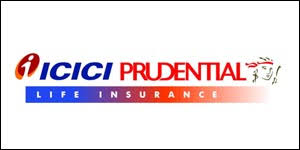 09-12-2019
09-12-2019
Zero NPA in 19 years: ICICI Prudential Life

 Insurance Alertss
Insurance AlertssZero NPA in 19 years: ICICI Prudential Life
Mumbai: ICICI Prudential Life Insurance, which will soon enter its 20th year of operations, has said that the company has not seen a single non-performing asset in the period because of stringent investment norms.
Speaking to TOI, N S Kannan, MD & CEO, ICICI Prudential Life, said the life insurance industry has a fairly clean asset book. “This is because the regulator has stipulated a minimum of AA- and above rating for corporate bonds.”
“Speaking for ourselves, we have been a bit more overweight on government bonds and underweight on corporate bonds, that has helped us. The proof of the pudding is that we had zero NPAs in 19 years of our existence,” said Kannan.
As of September 2019, ICICI Prulife has assets under management of Rs 1.65 lakh crore of which Rs 77,612 crore is in equity and the balance Rs 87,900 crore in fixed income. Of the fixed income investments, 93.6% are in government securities or AAA instruments.
The safety aspect is one of the reasons why life insurance companies have been showing healthy growth in recent years. The other is the improvement in productivity following a cap on charges, which has compelled companies to reduce operational costs. “The industry saw a major reset in 2010 with the capping of charges, this left us with no choice but to become more efficient,” said Kannan. “When we were doing around Rs 3,000 crore retail weighted received premium (RWRP) in FY12, we had a staff strength of around 12,000. Now, we are doing around Rs 7,000 crore with 14,000 staff,” said Kannan. The productivity has been driven by doubling of premium.
According to Kannan, there is a multi-decade opportunity for savings and protection considering that the penetration of these two is low in India. But despite this opportunity, ICICI Prulife does not see any need for capital. “Our solvency ratio is 211% as of September 2019 against the regulatory requirement of 150%. We do not foresee any requirement in the foreseeable future,” said Kannan. The need for capital will ease further if the regulator shifts to risk-based capital requirement. “Given that 69% of our assets are from unit-linked policies and that we do not have many guaranteed products, our economic capital will be far higher than the regulatory requirement,” said Kannan.
The company has not raised capital in over 10 years after both partners infused Rs 4,800 crore over the years. Kannan said that what has also improved efficiency is an innovation that has made life simpler for customers, distributors and employees. “Upward of 80% of our services are done by the customer on a self-service model. For distributors, we have a ‘nudge engine’, which uses analytics to tell them which is the best product for their customer,” he said. Technology in the form of the lead management system and chatbots helps to handhold employees who are engaged in direct sales.
Source: The Times of India
